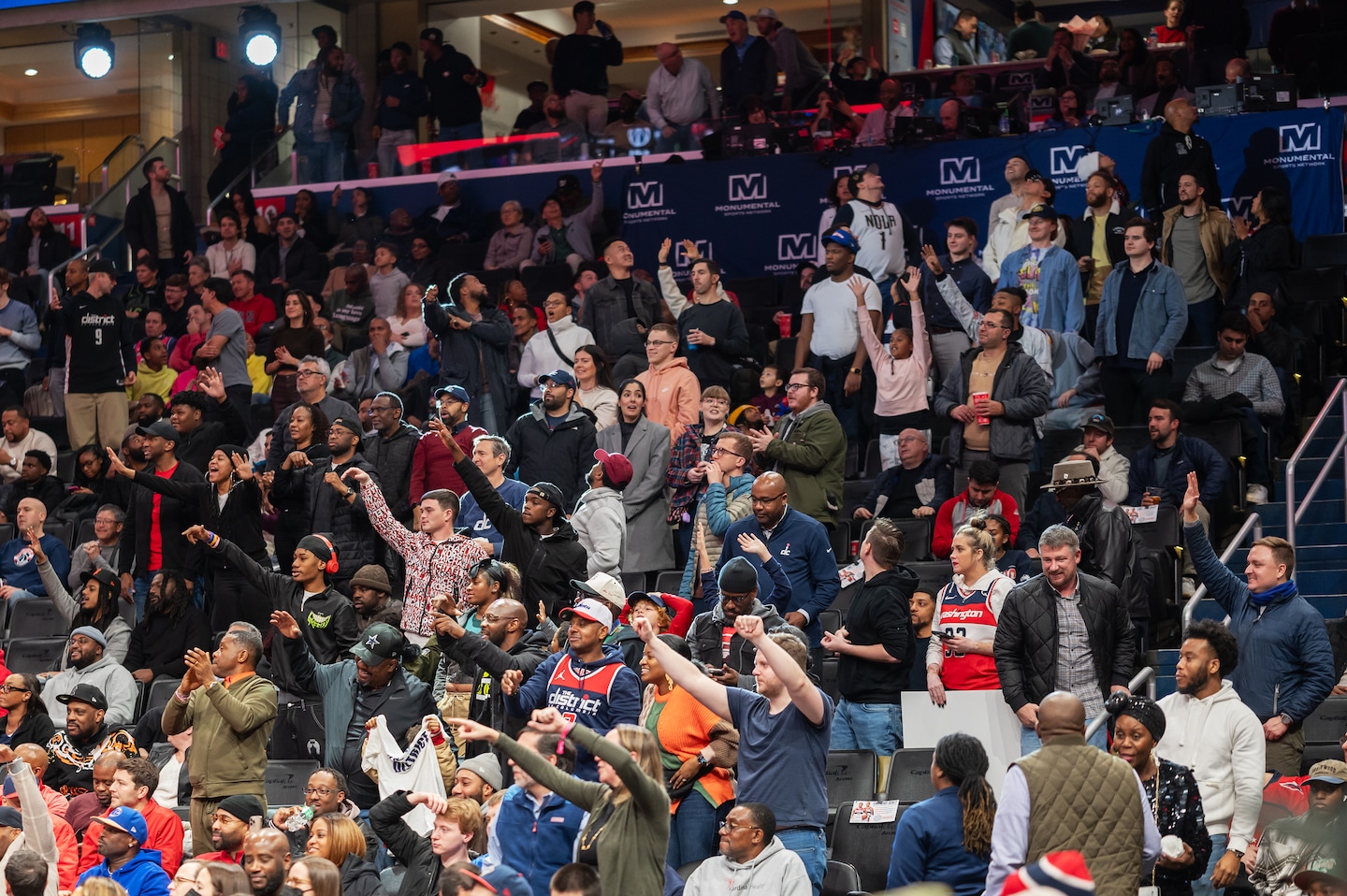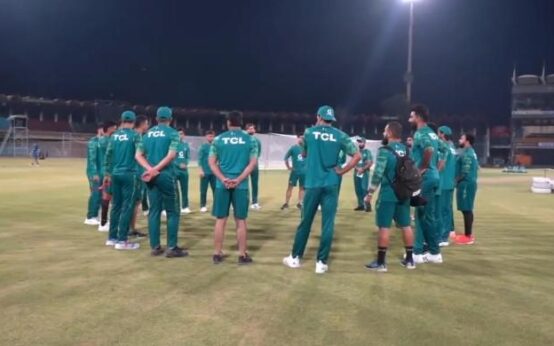“When Edwin Bancroft Henderson introduced his hometown of Washington, D.C. to basketball in 1907, the game was still less than two decades old. Basketball was largely a segregated enterprise in those days, taking a cue from the broader set of symptoms that plagued America during the period of Jim Crow. Henderson, Harvard educated and civic minded, organized play for African-American youth in the D.C. metropolitan area and soon basketball was all the rage.”
Henderson spawned the all-Black Washington Bears, who won the 1943 World Professional Basketball Tournament. They begot Elgin Baylor, who begot Tom Hoover and John Thompson, who begot Dave Bing, who begot Fatty Taylor and Austin Carr, who begot Kermit Washington, who begot Adrian Dantley, who begot Penny Toler (Penny Toler!), who begot Adrian Branch, Johnny Dawkins, Thurl Bailey and Tom Sluby, who begot Walt Williams, who begot Randolph Childress, who begot Steve Francis, who begot Kevin Durant et. al.
Wizards owner Ted Leonsis knows as much. Because last summer, his Leonsis Foundation and his company, Monumental Sports & Entertainment, pushed to $220,000 his contribution to the University of the District of Columbia, from which Henderson graduated when it had another name, to fund its Dr. E.B. Henderson Memorial Fund and erect a statue of Henderson in front of the sports complex named after him on UDC’s main campus in upper Northwest.
That’s why what unfolded the past few days — with Leonsis announcing an intention to move the Wizards from Capital One Arena south across the Potomac to a plot of land he’ll develop in Northern Virginia — hurts so, so much. It isn’t merely a relocation. It isn’t just a few more stops away on Metro’s Yellow Line, as some have dismissively said.
No, it’s a stabbing, a deep stabbing. An excision. A cutting out of yet another part of what was the soul of this city, like the loss of Bohemian Caverns, the nightclub where my parents went back in their day and I went as an adult upon my return; like the threat of pickleball taking over outdoor basketball courts. All in a city that became predominantly Black in the late 1950s; that became known as Chocolate City (thank you, George Clinton); and that only just in the most recent census hit an equilibrium between Black and White. The Wizards became the personification of our pastime; our representation, through good and bad, in the NBA.
And they’re going to Alexandria, Virginia. It may be barely four miles away in distance from downtown D.C., but it is much farther culturally and psychologically. Look no further than Leonsis cozying up to Virginia Gov. Glenn Youngkin (R) on Wednesday to make his painful relocation announcement. That alone aggravated the wound.
After all, though Youngkin in running for governor touted his basketball skills that earned him a scholarship to Rice, he has become better known for questioning the merits of Black history education; rescinding diversity, equity and inclusion policies in the Virginia Department of Education; and setting up a tattle tale phone line for school parents to report teachers they thought employed the boogeyman higher education analysis of U.S. systems called critical race theory. Youngkin has been pandering to his reactionary base in a state that is 68.5 percent White and 20 percent Black. The City of Alexandria, where he celebrated with Leonsis on Monday, is 56.7 percent White and 21.3 percent Black.
It all renders the marketing of the Wizards disingenuous. For just as the franchise once paid homage to Baltimore by being named after that city’s most famous piece of architecture — the Phoenix Shot Tower, that as the country’s tallest building in the 19th century turned molten lead into bullets — the D.C. iteration appropriated D.C. culture, most notably the playing of our indigenous go-go music at games. It even named its minor league team — which Leonsis almost altruistically planted in the city’s poorest ward, Ward 8 in Southeast — the Go-Go.
A Wizards team in Virginia should no longer get down to go-go. Just like Alexandria City Council member John Taylor Chapman (D) should not sport for the Wizards in Virginia the D.C. scarf he audaciously draped around his neck onstage with Leonsis and Youngkin.
The Leonsis plan is reminiscent of the most recent major city arena moves, Oakland and Atlanta. Oakland, a city predominated by people of color, lost its perennial NBA champion Warriors to Whiter, wealthier San Francisco, and its football and baseball teams to a similarly different Las Vegas.
This isn’t to say Leonsis purposely stole away D.C.’s Wizards to a less diverse clientele, but it is an undeniable, uncomfortable consequence. Just as in Cobb County, Ga., where the Atlanta baseball team moved far from its old downtown home.
Leonsis imitated owners in those cities who have explained they bailed on their longtime homes because they wanted space to build more than an arena.
“Frankly, I’m not sure you could find too many owners who have put serious thought into the communities around them, which is why it’s so important for policymakers and community leaders to push back when a team wants to move in or, in this case, move out,” Timothy Kellison, an associate professor in sport management at Florida State who has written extensively on the issue, emailed me. “To me, it very much parallels the White flight that happened in the 1950s and 60s.”
Sports stadiums aren’t just for stadiums’ sake anymore. We get that. We’ve witnessed Nationals Park in Southeast. Stadiums have turned into real estate deals to develop other entertainment, and maybe even housing, around the perimeter.
All of which reminds that neither D.C. Mayor Muriel E. Bowser (D) nor the D.C. Council are without blame for what will be an absolute fiasco if Alexandria and the Virginia legislature approve. Bowser talked a lot about bringing the Washington football franchise back to the city, but not nearly as much about retaining the basketball and hockey team, the Capitals. As D.C. Council member Charles Allen (D) argued last summer: “Investing in Capital One Arena instead of RFK makes sense … Capital One Arena is active year-round and sits on top of one of the most connected metro stations in the country. It anchors two teams that play more than 80 home games a year, is home court for the Georgetown Hoyas, and hosts concerts and special events, bringing more than 2 million people annually to the area for about 230 to 240 events a year.”
In the years before I started writing about sports, I covered economics. And one thing I recall about economic development is that retaining business is a better priority than chasing it. Rather than looking at the old RFK Stadium site as a plot for a new NFL edifice, the city should have revived thinking of it as space for a new basketball and hockey arena with plenty of acreage for other uses around it.
But if this is a done deal, then so much of D.C. as I grew up is done, too. D.C. can’t support a future NBA team or NHL franchise with its former flagships across the bridge. We aren’t New York. We aren’t Los Angeles.
And Virginia isn’t D.C.


 Best Underground Water Leak Detection Equipment 2024
Best Underground Water Leak Detection Equipment 2024  Best Backyard Ideas: Turn Your Outdoor Area Into a Creative and Calm Haven
Best Backyard Ideas: Turn Your Outdoor Area Into a Creative and Calm Haven  Babar, Rizwan are good players but not whole team, says Mohammad Hafeez
Babar, Rizwan are good players but not whole team, says Mohammad Hafeez  Pak vs NZ: Green Shirts aim to bounce back against Kiwis today
Pak vs NZ: Green Shirts aim to bounce back against Kiwis today